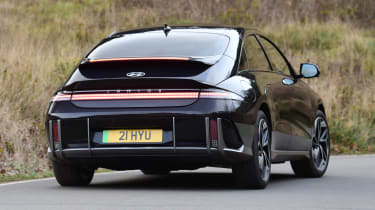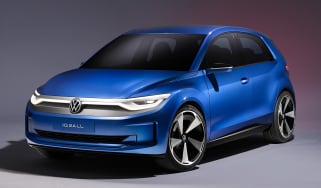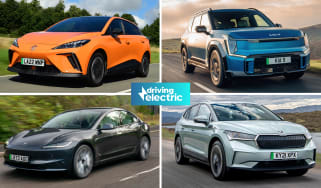Hyundai Ioniq 6 review: running costs & insurance
The Hyundai Ioniq 6 is relatively expensive to buy, but a long warranty and low running costs could make it more affordable than you think
| Insurance group | Warranty | Service interval | Annual CC cost (20%/40%) |
|---|---|---|---|
| 36-41 | 5yrs/unlimited miles | 2yrs/20,000 miles | From £188/£216 |
Like most electric cars, the Hyundai Ioniq 6 is more expensive to buy outright than a traditional petrol or diesel saloon car. However, business users will be able to benefit from rock-bottom Benefit-in-Kind (BiK) company car tax rates, while every Ioniq 6 owner can reap the rewards of drastically reduced running costs.
Hyundai Ioniq 6 insurance group
Which insurance group the Hyundai Ioniq 6 sits in generally relies on the powertrain setup you choose. Dual-motor cars sit in the relatively high group 41, which is also occupied by certain Long Range versions of the Polestar 2.
Single motor cars instead occupy the slightly lower group 37 and 38 – this depends on whether you choose the Premium or Ultimate trim – which is in-line with non-M versions of the BMW i4. Regardless, no matter which configuration of the Ioniq 6 you go for, the Hyundai saloon will almost always be cheaper to insure than the Tesla Model 3, which sits in groups 48-50.
Warranty
All Hyundai models come with a five-year/unlimited-mileage warranty. This is amongst the best in the business, bar perhaps the seven-year/100,000-mile coverage offered for the Kia EV6. Unfortunately, unlike some electric cars, the Ioniq 6’s battery is not covered under a separate warranty – BMW says it’ll cover the i4’s battery for up to eight years.
Servicing
Electric cars typically require less-frequent servicing than their petrol-powered equivalents and the Ioniq 6 is no different. Hyundai says its electric saloon will need to come in for service every two years or 20,000 miles – whichever comes soonest. This is unlike Teslas where there are no set service intervals, with the car notifying you whenever a service is required
Road tax
The Hyundai Ioniq 6 – like all electric cars – is exempt from road tax (VED) until 2025. EVs are also not required to pay the London Congestion Charge and the city’s Ultra-Low Emission Zone (ULEZ) charge for the time being.
Depreciation
Over a course of three years and 36,000 miles, the Hyundai Ioniq 6 should retain anything between 51% and 56% of its initial value, with single motor cars able to fend off depreciation the best. This is about average for the class, although the Polestar 2 and BMW i4 will hold onto slightly more of their original asking prices at around 60%.




